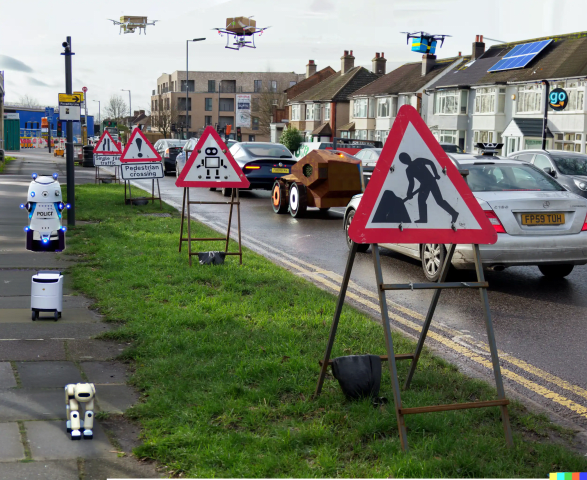Incident 834: La Chine cible les fraudes liées à l'IA et les scandales de deepfakes avec de nouvelles mesures de répression
Description: Les forces de l'ordre chinoises ont ciblé une augmentation des crimes liés à l'IA. Ces crimes incluent le deepfake et la synthèse vocale utilisés à des fins de fraude, d'usurpation d'identité et d'utilisation non autorisée de droits de la personnalité. En particulier, les escroqueries par « déshabillage par IA », les fausses relations utilisant des voix de synthèse et les logiciels de piratage de jeux vidéo constituent un grand nombre de ces cas. En réponse, les autorités ont engagé des poursuites à plusieurs reprises et mis en place une réglementation plus stricte pour contrôler les abus liés à l'IA.
Editor Notes: Incident 834 represents an editorial challenge in that the reporting represents multiple discrete AI incidents that are also indicative of many other similar harm events, all collected in singular news reports. Names such as "Mouhe" and "Moumou" refer to practices in Chinese-language reporting that partially anonymize names. Here is a reconstruction of the incidents mentioned in this reporting: (1) In 2022, Wang Mouhe, a former gaming software developer, engineered and sold AI-driven cheating software that enabled automated aiming and shooting in games, which disrupted fair play and generated over ¥6.29 million in profits. On May 6, 2024, Wang received a three-year prison sentence, suspended for five years, marking China’s first recognized AI-related gaming cheat case. (2) On April 13, 2023, Zhu, a business owner, reported unauthorized access to her government app account, where her company’s electronic business license was downloaded. Investigation revealed that suspect Zeng Moumou had used Zhu’s personal information to create AI-generated face animations, allowing him to bypass the app’s facial recognition security and fraudulently access the account. In other words, this incident indicates the rise of other similar AI-enabled identity theft incidents. (3) In May 2023, a group began using AI to fabricate sensational viral videos, producing over 3,000 unverified clips to attract views and online engagement. (4) In June 2023, police in Shangyu, Zhejiang, identified a fabricated AI video depicting a fire at the Shangyu Industrial Park, with flames and explosions, which went viral online. Police later arrested Tang Mou, a network technology company employee, along with two accomplices, who were responsible for creating the composite video using AI. (5) On April 12, 2024, the Ministry of Public Security announced ten AI-related cybercrime cases, including four that involved AI-facilitated disinformation. (6) On April 23, 2024, Beijing Internet Court ruled on China’s first AI voice rights infringement case, ordering damages of ¥250,000 for unauthorized use of a plaintiff’s voice in an AI-based text-to-speech product. (7) On June 25, 2024, the Zhangjiagang Procuratorate in Jiangsu prosecuted a fraud ring that used AI to create fake images, posing as overseas Chinese students on dating platforms and extorting over ¥1 million from victims. (8) Law enforcement has responded through comprehensive measures: the Ministry of Public Security has expanded the “Clean Net” campaign to target AI-driven identity theft and disinformation schemes, collaborating with research institutions to enhance face recognition and liveness detection technology to defend against AI manipulation. (9) The incident date of July 4, 2024 is set because that is when the Legal Daily report published their comprehensive summary of AI-related criminal cases and the Chinese government’s crackdown on AI misuse. This report documents various cases of AI-driven fraud, disinformation, and identity theft, and it emphasizes law enforcement’s active measures escalating official responses to AI-enabled crimes. An earlier report from October 26, 2023 contains some information that makes up this incident ID as well.
Entités
Voir toutes les entitésAlleged: Unknown voice synthesis technology developers , Unknown game cheating technology developers et Unknown deepfake technology developers developed an AI system deployed by Zeng Moumou , Wang Mouhe , Unknown deepfake creators , Tang Mou , Bai Moumou , AI fraud rings in China et Unknown scammers, which harmed Chinese general public et Chinese citizens.
Statistiques d'incidents
Risk Subdomain
A further 23 subdomains create an accessible and understandable classification of hazards and harms associated with AI
4.3. Fraud, scams, and targeted manipulation
Risk Domain
The Domain Taxonomy of AI Risks classifies risks into seven AI risk domains: (1) Discrimination & toxicity, (2) Privacy & security, (3) Misinformation, (4) Malicious actors & misuse, (5) Human-computer interaction, (6) Socioeconomic & environmental harms, and (7) AI system safety, failures & limitations.
- Malicious Actors & Misuse
Entity
Which, if any, entity is presented as the main cause of the risk
Human
Timing
The stage in the AI lifecycle at which the risk is presented as occurring
Post-deployment
Intent
Whether the risk is presented as occurring as an expected or unexpected outcome from pursuing a goal
Intentional
Rapports d'incidents
Chronologie du rapport
Loading...

La technologie de l’intelligence artificielle (IA) se développe rapidement et certains criminels l’utilisent pour mener des activités illégales et criminelles, ce qui pose de sérieux défis à la sécurité des réseaux. Récemment, les organes d…
Loading...

Le 12 avril, le ministère de la Sécurité publique a annoncé 10 cas typiques de répression des rumeurs et des crimes en ligne, dont quatre impliquaient l'utilisation de la technologie de l'intelligence artificielle (ci-après dénommée IA) pou…
Variantes
Une "Variante" est un incident de l'IA similaire à un cas connu—il a les mêmes causes, les mêmes dommages et le même système intelligent. Plutôt que de l'énumérer séparément, nous l'incluons sous le premier incident signalé. Contrairement aux autres incidents, les variantes n'ont pas besoin d'avoir été signalées en dehors de la base de données des incidents. En savoir plus sur le document de recherche.
Vous avez vu quelque chose de similaire ?
Incidents similaires
Did our AI mess up? Flag the unrelated incidents
Incidents similaires
Did our AI mess up? Flag the unrelated incidents



